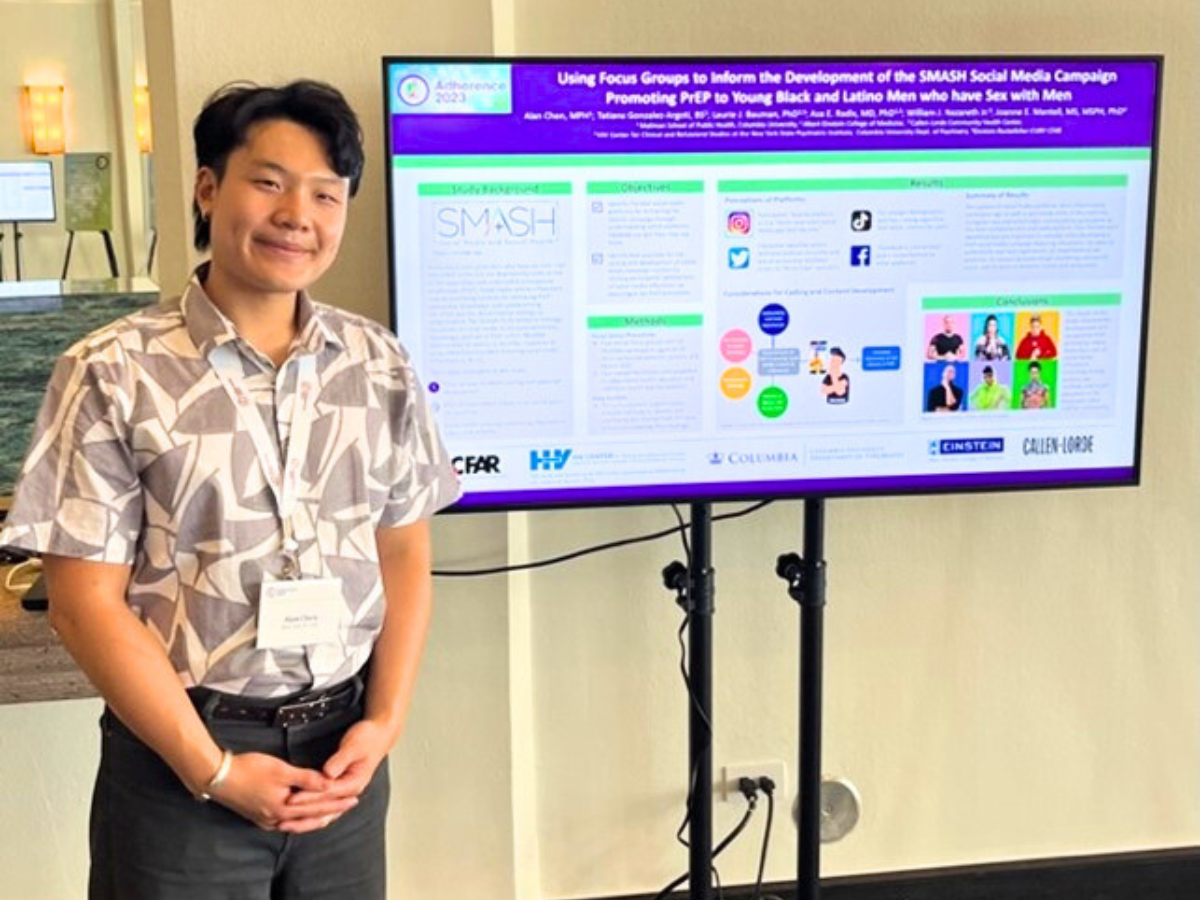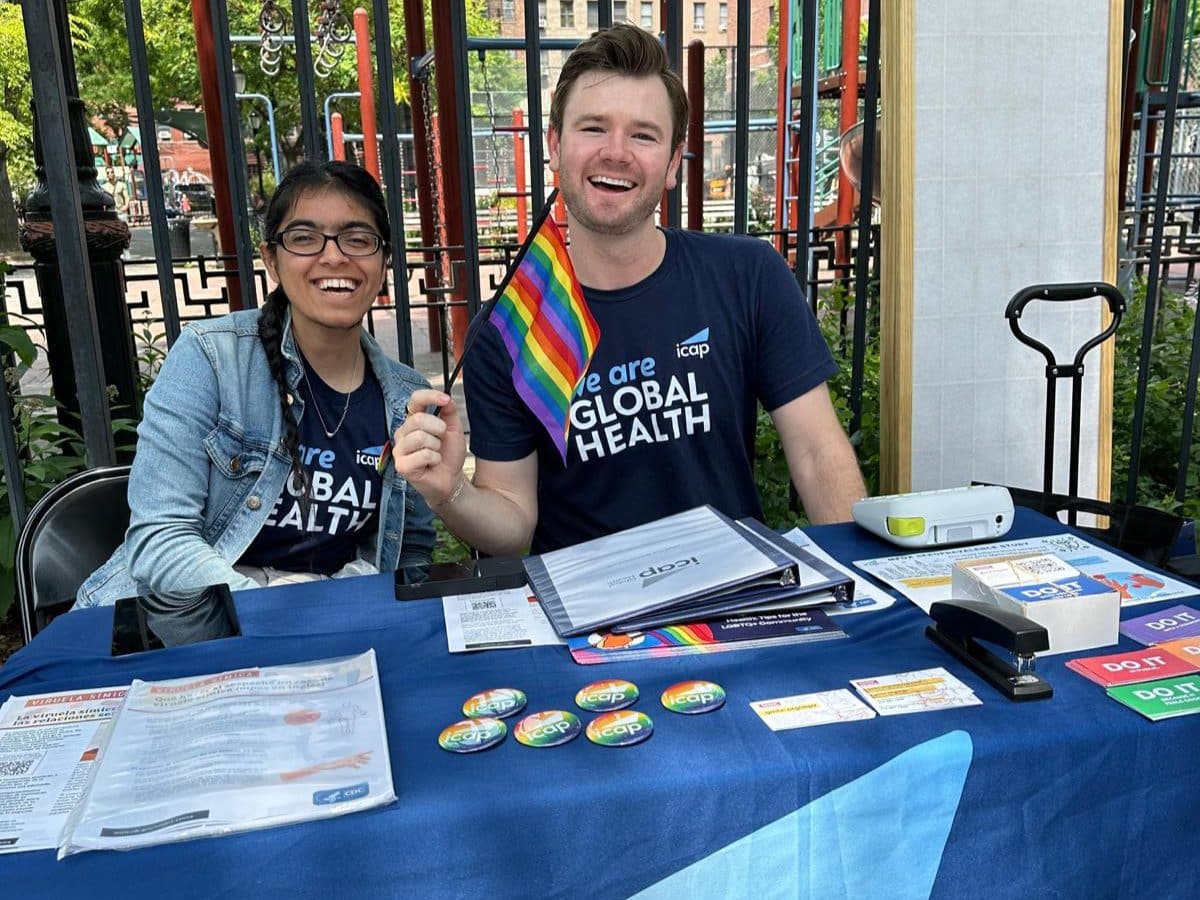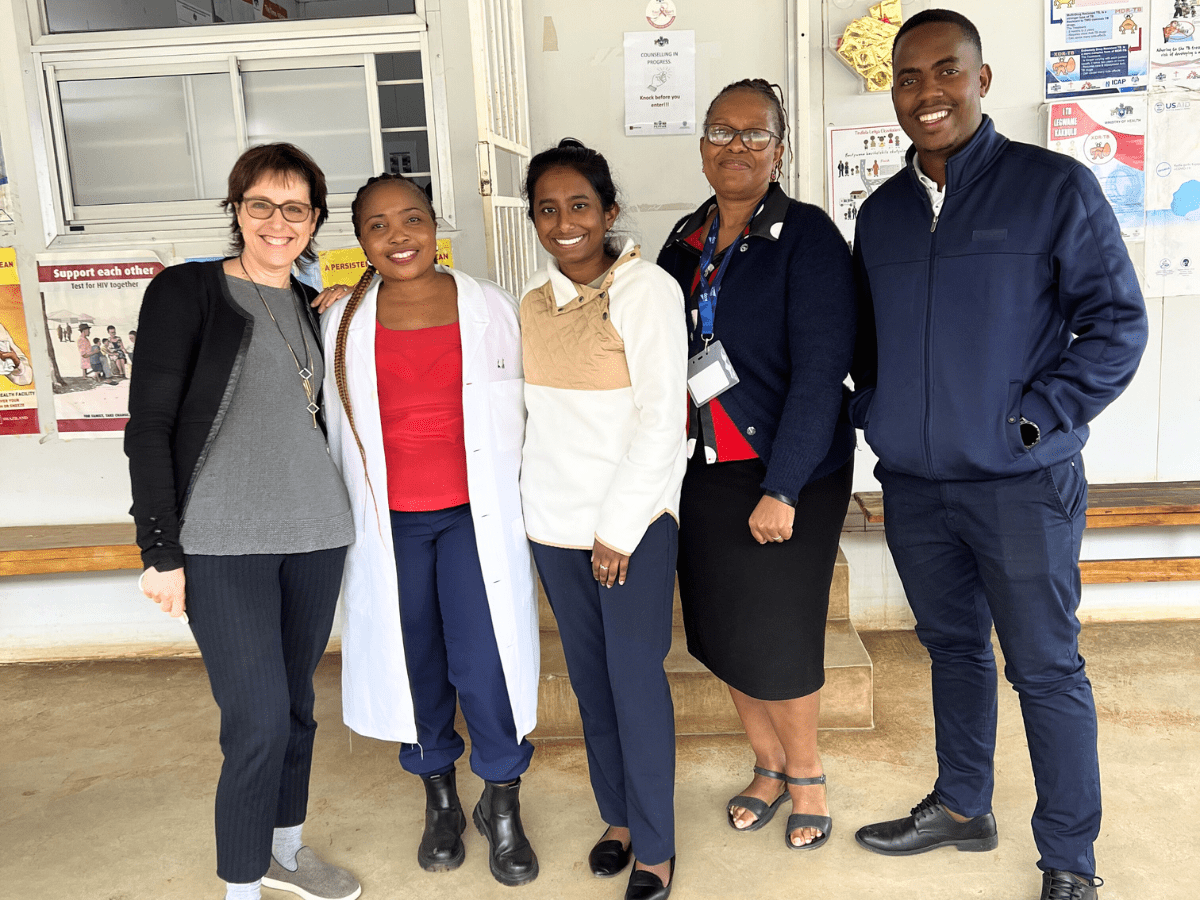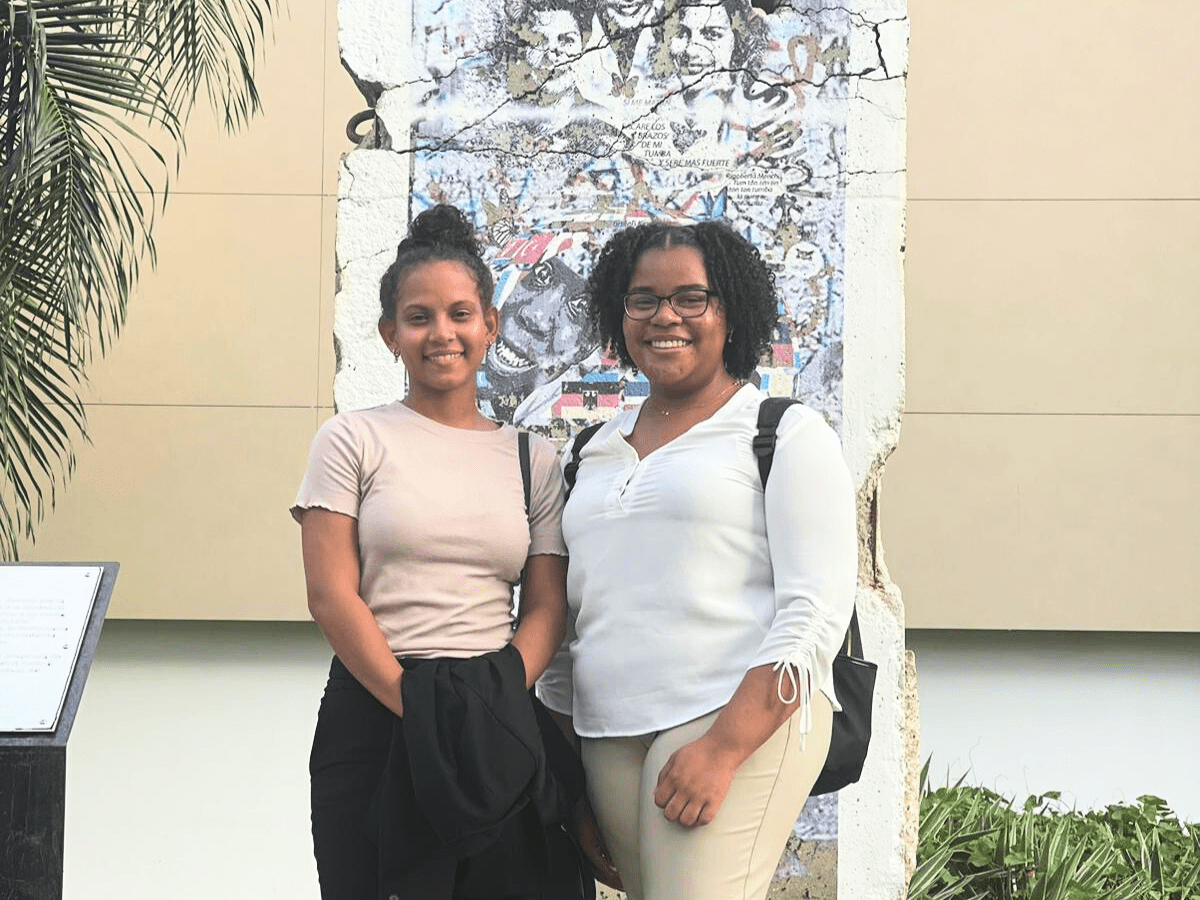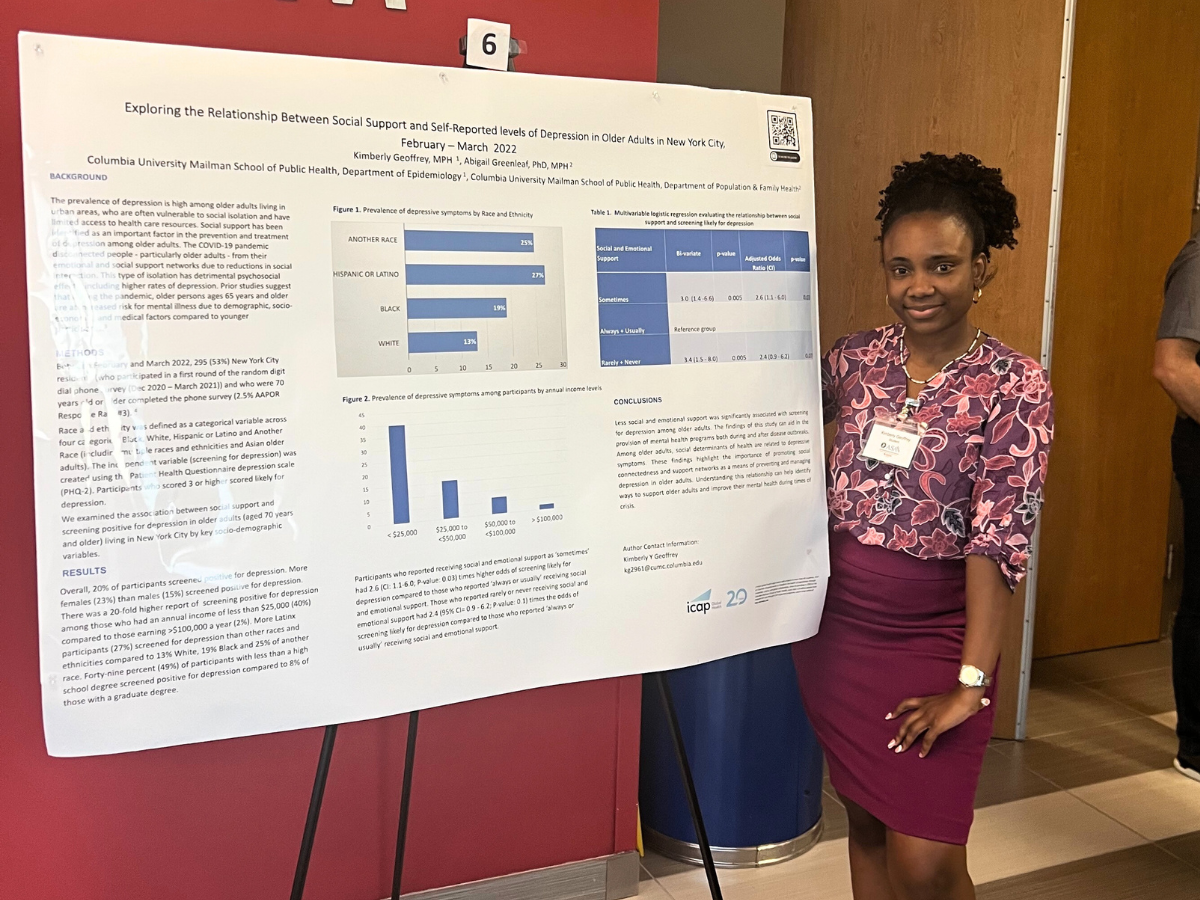When I joined the Social Media and Sexual Health (SMASH) research team as an ICAP Next Generation intern last June, I had no idea I was about to embark on a year-long journey culminating in a trip to Fajardo, Puerto Rico.
In Puerto Rico, I presented an e-poster at Adherence 2023, an HIV treatment and prevention research conference hosted by the International Association of Providers of AIDS Care. As the taxi pulled up to the conference venue, the El Conquistador Resort, my stomach began doing somersaults. Not only was this the first research conference I had ever attended, but I was also attending alone. I wondered – will I be able to present my e-poster confidently? Will I have meaningful networking opportunities? Will I make any friends? This swirl of anxious thinking was assuaged once I stepped out of the taxi and was met with the peaceful sound of palm trees rustling. Let my nerves drift away with this breeze, I thought, and so they did.
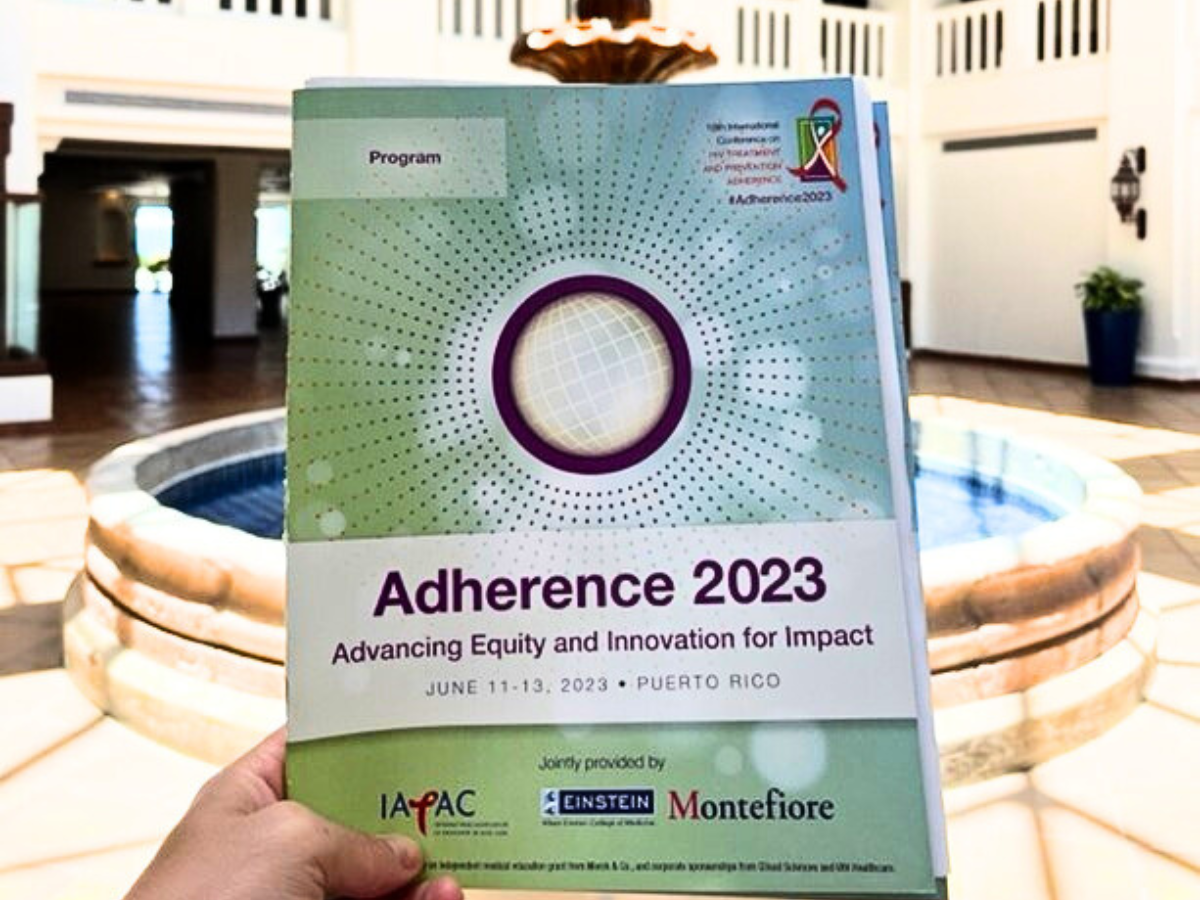
Through the Next Generation Program, students engage in the design, implementation, and evaluation of ICAP-supported programs while working side-by-side with global health experts, including at major global conferences like Adherence.
The conference was an incredible success. I learned so much from other HIV researchers and healthcare professionals, met inspiring people, and shared my research with an engaged audience. But how did I get here? Let’s hit rewind.
When surveying potential practicum opportunities last year, I came across the SMASH project on ICAP’s Next Generation recruitment flyer. The goal of the project was to leverage the power of social media to increase awareness, knowledge, and uptake of pre-exposure prophylaxis (PrEP) amongst young Black and Latino men who have sex with men (YBLMSM), two populations with disproportionate risk to HIV acquisition in the United States.
I immediately felt aligned with this project. Pursuing my Master of Public Health degree at Columbia’s Mailman School of Public Health, I consistently gravitated towards health promotion, digital health, and health communication courses. Furthermore, through my own experiences accessing PrEP, I had a personal and professional mission to improve access to PrEP for those who need it most. The SMASH project hit all the marks, so I was elated when I was offered the opportunity to join the team.
Throughout my practicum exploring the power of social media to increase PrEP awareness and use, I developed many new research skills, such as programming Qualtrics surveys and collecting social media data. I was even able to co-lead writing a manuscript reporting on focus group data about YBLMSM’s use of social media, their perceptions of social media influencers, and their recommendations for PrEP-promoting social media campaigns. Not only did this manuscript serve as my departmental thesis, but it will also be sent out to journals to be considered for publication. I would not have been able to reach these milestones if not for the fierce support of Joanne E. Mantell, my ICAP research mentor and co-PI of the study from the HIV Center for Clinical and Behavioral Studies, Tatiana Argoti-Gonzalez, a co-lead author from the Albert Einstein College of Medicine, the remainder of the SMASH team, and the ICAP Next Generation program, which provided me with this opportunity.
It was these very experiences that landed me at the Adherence 2023 conference. I presented on my research exploring factors that YBLMSM consider important in the casting and development of effective and impactful PrEP-promoting social media campaigns, specifically those featuring social media influencers. Many conference attendees viewed the e-poster, asked questions, and even stayed after my presentation to discuss the findings. For example, our team’s research found that although YBLMSM believe it is important to tailor social media campaign content to a focus population by casting influencers who share similar racial identities and sexualities, some participants feared this casting could further stigmatize queer Black and Latino communities.
Understanding these nuances will continue to help fill research gaps in health communication science. It will also inform outreach that uses social media and its influencers as health messengers, so that future health campaigns can be effective while doing the least amount of undue harm.
Alan R. Chen
MPH, Sociomedical Sciences, Mailman School of Public Health
Next Generation Intern
About ICAP
A major global health organization that has been improving public health in countries around the world for two decades, ICAP works to transform the health of populations through innovation, science, and global collaboration. Based at Columbia Mailman School of Public Health, ICAP has projects in more than 40 countries, working side-by-side with ministries of health and local governmental, non-governmental, academic, and community partners to confront some of the world’s greatest health challenges. Through evidence-informed programs, meaningful research, tailored technical assistance, effective training and education programs, and rigorous surveillance to measure and evaluate the impact of public health interventions, ICAP aims to realize a global vision of healthy people, empowered communities, and thriving societies. Online at icap.columbia.edu


